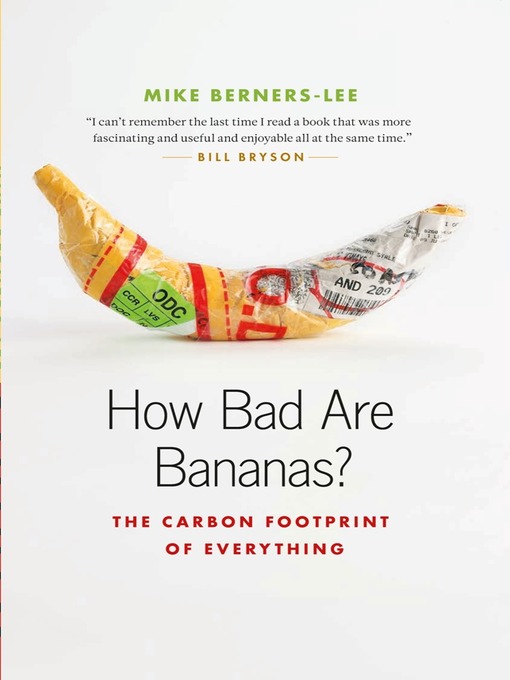- English
- Español
- 中文(简体)
-
Description
-
Details
-
Reviews
The book puts our decisions into perspective with entries for the big things (the World Cup, volcanic eruptions, the Iraq war) as well as the small (email, ironing, a glass of beer). And it covers the range from birth (the carbon footprint of having a child) to death (the carbon impact of cremation).
Packed full of surprises — a plastic bag has the smallest footprint of any item listed, while a block of cheese is bad news — the book continuously informs, delights, and engages the reader. Solidly researched and referenced, the easily digestible figures, statistics, charts, and graphs (including a section on the carbon footprint of various foods) will encourage discussion and help people to make up their own minds about their consumer choices.

Kindle Book
- Release date: April 1, 2011
OverDrive Read
- ISBN: 9781553658320
- Release date: April 1, 2011
EPUB ebook
- ISBN: 9781553658320
- File size: 1004 KB
- Release date: April 1, 2011

Loading
The book puts our decisions into perspective with entries for the big things (the World Cup, volcanic eruptions, the Iraq war) as well as the small (email, ironing, a glass of beer). And it covers the range from birth (the carbon footprint of having a child) to death (the carbon impact of cremation).
Packed full of surprises — a plastic bag has the smallest footprint of any item listed, while a block of cheese is bad news — the book continuously informs, delights, and engages the reader. Solidly researched and referenced, the easily digestible figures, statistics, charts, and graphs (including a section on the carbon footprint of various foods) will encourage discussion and help people to make up their own minds about their consumer choices.

-
Details
Publisher:
Greystone Books
Kindle Book
Release date: April 1, 2011
OverDrive Read
ISBN: 9781553658320
Release date: April 1, 2011
EPUB ebook
ISBN: 9781553658320
File size: 1004 KB
Release date: April 1, 2011
-
Creators
- Mike Berners-Lee - Author
-
Formats
Kindle Book
OverDrive Read
EPUB ebook
-
Languages
English
-
Reviews

Loading
Why is availability limited?
×Availability can change throughout the month based on the library's budget. You can still place a hold on the title, and your hold will be automatically filled as soon as the title is available again.
The Kindle Book format for this title is not supported on:
×Read-along ebook
×The OverDrive Read format of this ebook has professional narration that plays while you read in your browser. Learn more here.
